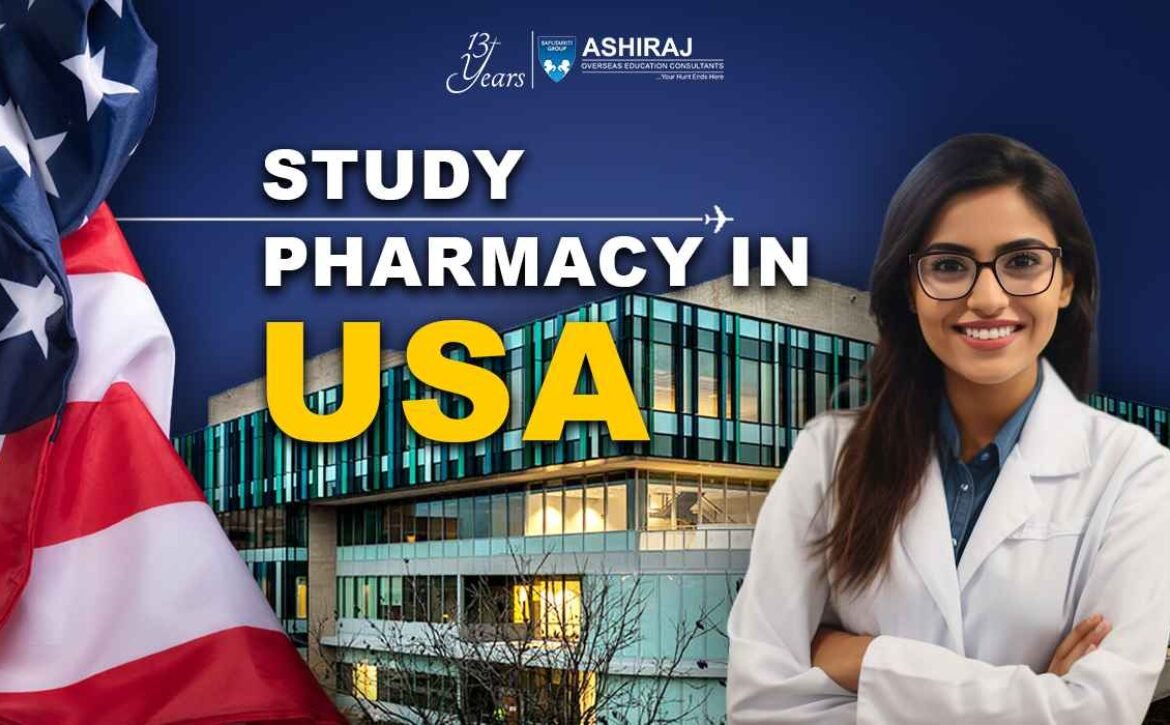
Pharmacy in USA
Pharmacy in USA plays a crucial role in the healthcare system, providing essential medications and advice to ensure the well-being of patients. Pharmacists in the USA are highly trained professionals who must complete rigorous educational requirements, including a Doctor of Pharmacy (Pharm.D.) degree. They are integral to patient care, offering services that range from dispensing prescriptions to providing immunizations and conducting health screenings. The role of the pharmacist has evolved significantly over the years, with a growing emphasis on patient-centered care and collaboration with other healthcare providers.
The landscape of pharmacy in USA is also shaped by regulatory frameworks and technological advancements. State and federal laws govern the practice of pharmacy, ensuring that pharmacists adhere to strict standards of practice. Additionally, the integration of digital health technologies, such as electronic prescribing and telepharmacy, has enhanced the efficiency and accessibility of pharmacy services. These advancements have made it easier for patients to obtain their medications and receive professional advice, underscoring the importance of pharmacy in USA’s healthcare system.
Why to Study Pharmacy in USA?
- High-Quality Education
Pharmacy programs in USA are known for their rigorous and comprehensive curriculum, ensuring that students receive a high-quality education.
- Accredited Programs
Many pharmacy schools in USA are accredited by the Accreditation Council for Pharmacy Education (ACPE), guaranteeing that they meet high standards of education.
- Advanced Research Opportunities
Students have access to cutting-edge research facilities and opportunities to participate in innovative research projects in the field of pharmacy.
- Diverse Career Paths
Studying pharmacy in USA opens up diverse career opportunities in community pharmacy, hospital pharmacy, pharmaceutical industry, academia, and more.
- Competitive Salary
Pharmacists in USA enjoy competitive salaries and benefits, making it a lucrative career choice.
- Professional Growth
The dynamic nature of the pharmacy profession in USA provides numerous opportunities for professional development and advancement.
- Healthcare Impact
Pharmacists play a critical role in the healthcare system, contributing to patient care, medication management, and public health initiatives.
- Interdisciplinary Collaboration
Studying pharmacy in USA allows students to work collaboratively with other healthcare professionals, enhancing their interdisciplinary skills.
- Technological Integration
Pharmacy education in USA incorporates the latest technological advancements, preparing students for modern healthcare environments.
- Global Recognition
A pharmacy degree from USA is globally recognized and respected, offering graduates opportunities to work internationally.
By choosing to study pharmacy in USA, students gain access to a robust educational system, diverse career opportunities, and the chance to make a significant impact in the healthcare industry.
Top Universities to Study Pharmacy in USA
Rank | University | QS World University Rankings 2023 | Type of University | Average Annual Fees | Programs Offered |
1 | University of California, San Francisco (UCSF) | 12 | Public | $55,000 | Pharm.D., Ph.D., M.S. |
2 | University of Michigan, Ann Arbor | 23 | Public | $52,000 | Pharm.D., Ph.D., M.S., Dual Degrees |
3 | University of North Carolina, Chapel Hill | 28 | Public | $49,000 | Pharm.D., Ph.D., M.S., Dual Degrees |
4 | University of Minnesota, Twin Cities | 38 | Public | $47,000 | Pharm.D., Ph.D., M.S., Residency Programs |
5 | University of Southern California (USC) | 41 | Private | $60,000 | Pharm.D., Ph.D., M.S., Certificate Programs |
Pharmacy in USA offers numerous advantages for students aiming to pursue a career in the field. The table above highlights the top universities in USA for pharmacy, showcasing their rank, type, fees, and programs offered. These institutions are renowned for their comprehensive pharmacy programs, offering degrees such as Pharm.D., Ph.D., and various master’s degrees. The University of California, San Francisco, holds a prominent position due to its exceptional curriculum and research opportunities. Similarly, the University of Michigan and University of North Carolina are acclaimed for their rigorous programs and interdisciplinary approach.
Choosing to study pharmacy in USA at these top universities ensures students receive a high-quality education and access to cutting-edge research. The investment in education at these institutions is justified by the diverse career opportunities and potential for professional growth in the healthcare industry.
Course Curriculum for Pharmacy in USA
- Foundational Sciences
Pharmacy programs in USA typically start with foundational courses in anatomy, physiology, biochemistry, and pharmacology.
- Pharmaceutical Sciences
Students learn about the formulation, manufacturing, and quality control of medications, including dosage forms and drug delivery systems.
- Clinical Sciences
The curriculum includes courses in patient assessment, therapeutics, pharmacotherapy, and disease management to prepare students for clinical practice.
- Pharmacy Practice
Students gain hands-on experience through experiential rotations in various pharmacy settings, including community pharmacies, hospitals, and clinics.
- Patient Care
Emphasis is placed on developing patient communication and counseling skills to ensure safe and effective medication use.
- Professional Development
Pharmacy programs focus on fostering professionalism, ethics, and leadership qualities among students to prepare them for their roles as healthcare providers.
- Interdisciplinary Collaboration
Students learn to collaborate with other healthcare professionals, such as physicians, nurses, and pharmacists, to provide comprehensive patient care.
- Elective Courses
Pharmacy students have the opportunity to choose elective courses based on their interests and career goals, such as pharmacogenomics, infectious diseases, or oncology.
- Research Opportunities
Many pharmacy programs offer research opportunities for students to engage in cutting-edge research projects alongside faculty members.
- Continuing Education
Pharmacy programs emphasize the importance of lifelong learning and offer continuing education opportunities for practicing pharmacists to stay updated with advances in the field.
The course curriculum of pharmacy in USA is designed to provide students with a comprehensive education in pharmaceutical sciences, clinical practice, and patient care. Through a combination of classroom instruction, experiential learning, and research opportunities, pharmacy students develop the knowledge, skills, and professionalism necessary to succeed in their careers.
Eligibility Criteria & Admission Requirements for MS in Pharmacy in USA
- Educational Background
A bachelor’s degree in pharmacy, chemistry, biology, or a related field from an accredited institution.
- English Language Proficiency
International students must demonstrate proficiency in English through standardized tests such as IELTS or TOEFL.
- Standardized Test Scores
Applicants may need to submit GRE or GMAT scores, depending on the specific requirements of the pharmacy program.
- Academic Performance
A strong academic record with a minimum GPA as specified by the pharmacy school.
- Work Experience
Relevant work experience in pharmacy or healthcare can strengthen the application.
- Letters of Recommendation
Typically, 2-3 letters of recommendation from academic or professional references.
- Personal Statement
A well-written personal statement outlining the applicant’s goals, motivations, and reasons for choosing pharmacy in USA.
- Passport & Student Visa
A valid passport and the necessary student visa (usually an F-1 visa) to study in the USA.
- Academic Certificates
Transcripts and degree certificates from previous educational institutions.
Standardized Test Scores
Test | Minimum Score Required |
IELTS | 6.5 7.0 |
TOEFL | 90 100 |
GRE | 300+ |
GMAT | 600+ |
Meeting the eligibility criteria for studying pharmacy in USA involves several key components. Prospective students must have a relevant bachelor’s degree and demonstrate proficiency in English through IELTS or TOEFL scores. Standardized test scores such as GRE or GMAT are often required, and a strong academic record is essential. Work experience in the pharmacy field can be a significant advantage, alongside letters of recommendation and a compelling personal statement. Additionally, applicants must have a valid passport and obtain the appropriate student visa to pursue their studies in the USA.
Documents Required for Studying Pharmacy in USA
- Passport
A valid passport for the duration of your studies in the USA.
- Letters of Recommendation (LOR)
Two letters of recommendation from academic or professional references.
- Statement of Purpose (SOP)
A well-written Statement of Purpose outlining your goals, motivations, and reasons for choosing pharmacy in USA.
- Curriculum Vitae (CV)
An updated CV detailing your academic and professional background, including any relevant work experience.
- Official High School Transcripts
Certified copies of your high school transcripts and certificates.
- Work Experience Certificate
Proof of any relevant work experience in pharmacy or healthcare.
- Proof of Financial Resources
Documentation showing sufficient financial resources to cover tuition fees and living expenses in the USA.
- English Language Proficiency Test Scores
Official scores from IELTS or TOEFL demonstrating English language proficiency.
- Standardized Test Scores
GRE or GMAT scores, if required by the specific pharmacy program.
To apply for pharmacy in USA, you must gather a comprehensive set of documents. These include a valid passport, two letters of recommendation, and a detailed Statement of Purpose. An updated CV and official high school transcripts are essential, along with any work experience certificates. Proof of financial resources is necessary to demonstrate your ability to support yourself during your studies. Additionally, you must provide scores from English language proficiency tests like IELTS or TOEFL and standardized tests like GRE or GMAT, depending on program requirements.
Admission Process for Pharmacy in USA
- Research Programs
Identify and research pharmacy programs in USA that align with your career goals and interests.
- Meet Eligibility Requirements
Ensure you meet the academic qualifications, English proficiency, and standardized test score requirements (GRE/GMAT, IELTS/TOEFL).
- Gather Necessary Documents
Prepare essential documents: passport, academic transcripts, CV, two letters of recommendation, Statement of Purpose, work experience certificate, and proof of financial resources.
- Submit Applications
Apply to selected pharmacy schools in USA through their online application portals, ensuring all required documents and fees are submitted.
- Take Entrance Exams
Complete any required entrance exams (such as GRE or GMAT) and ensure your scores are sent to the universities.
- Attend Interviews
If invited, participate in interviews or assessments as part of the admissions process.
- Receive Admission Decisions
Wait for acceptance letters from the universities and review your admission offers.
- Secure Funding
Arrange for financial resources or apply for scholarships and financial aid if available.
- Apply for Student Visa
Obtain an F-1 student visa by scheduling a visa interview at the nearest US embassy or consulate and providing the required documentation.
- Plan for Arrival
Make travel arrangements and attend any pre-departure orientations provided by the university.
Following these steps ensures a smooth admission process for pharmacy in USA, helping you transition from applicant to student in one of the world’s leading pharmacy education systems.
“Education is the most powerful weapon which you can use to change the world.”
Nelson Mandela
Cost of Pharmacy Course in USA
- Tuition Fees
Tuition fees for pharmacy programs in USA vary widely depending on the institution, ranging from $20,000 to $60,000 per year.
- Additional Expenses
Additional expenses such as books, supplies, and living costs can add another $10,000 to $20,000 per year.
- Duration of Program
The duration of a Pharm.D. program in the USA is typically four years, adding to the overall cost of education.
- Scholarship Opportunities
Pharmacy students may be eligible for scholarships and financial aid to help offset the cost of tuition and living expenses.
- Location
The cost of living varies depending on the location of the pharmacy school, with urban areas generally being more expensive than rural areas.
- Part-Time Work
Some students may choose to work part-time during their studies to help cover expenses, but it’s essential to balance work and academics effectively.
- Student Loans
Many students rely on student loans to finance their pharmacy education, but it’s important to consider the long-term implications of loan repayment.
- Budgeting
Creating a budget and managing finances effectively can help pharmacy students navigate the cost of studying in the USA more efficiently.
Understanding the cost of studying pharmacy in USA is crucial for prospective students to plan their finances effectively. Tuition fees, additional expenses, scholarship opportunities, and location all contribute to the overall cost of education. By considering these factors and exploring options for financial assistance, students can make informed decisions about pursuing pharmacy education in the USA.
Scholarships for Pharmacy Courses in USA
Scholarship Name | Amount (USD) | Eligibility Criteria | Application Deadline |
American Pharmacists Association (APhA) Foundation Scholarships | $1,000 $2,500 | Pharmacy students with a strong academic record and involvement in APhA-ASP | Varies, typically February |
Tylenol Future Care Scholarship | $5,000 $10,000 | Students pursuing healthcare degrees, including pharmacy, with academic excellence and leadership | Typically June |
Express Scripts Scholars Program | $10,000 | Pharmacy students with financial need and a commitment to advancing the pharmacy profession | Typically September |
Walgreens Diversity Scholarship | $2,000 $3,000 | Pharmacy students demonstrating commitment to diversity and inclusion in healthcare | Typically March |
American Association of Colleges of Pharmacy (AACP) Walmart Scholars Program | $1,000 | Pharmacy students and their faculty mentors; focus on future academic pharmacy careers | Typically January |
Pharmacy in USA offers various scholarships to support students in their educational journey. The American Pharmacists Association Foundation Scholarships provide $1,000 to $2,500 to students with a strong academic record and active involvement in APhA-ASP, with deadlines varying but typically in February. The Tylenol Future Care Scholarship awards $5,000 to $10,000 to students in healthcare fields, including pharmacy, based on academic excellence and leadership, with a deadline usually in June.
The Express Scripts Scholars Program offers $10,000 to students demonstrating financial need and a commitment to the pharmacy profession, typically due in September. The Walgreens Diversity Scholarship, providing $2,000 to $3,000, is aimed at students who promote diversity and inclusion in healthcare, with an application deadline usually in March. Additionally, the American Association of Colleges of Pharmacy (AACP) Walmart Scholars Program awards $1,000 to pharmacy students and their faculty mentors, focusing on future academic pharmacy careers, with applications typically due in January. These scholarships significantly reduce the financial burden of studying pharmacy in USA and encourage students to excel in their field.
Career Opportunities After Pharmacy in USA
Job Profile | Average Salary (USD) | Description |
Pharmacist | $120,000 $150,000 | Dispenses medications, provides patient education, and offers healthcare advice. |
Clinical Pharmacist | $110,000 $130,000 | Works directly with healthcare teams to optimize medication therapy and patient outcomes. |
Pharmaceutical Scientist | $90,000 $120,000 | Conducts research and development of new drugs, ensuring safety and efficacy. |
Pharmacy Manager | $130,000 $160,000 | Oversees pharmacy operations, staff management, and ensures regulatory compliance. |
Pharmacologist | $100,000 $130,000 | Studies the effects of drugs on biological systems, contributing to drug discovery and development. |
Pharmacy in USA opens up diverse career opportunities with competitive salaries. Pharmacists, with average salaries ranging from $120,000 to $150,000, play a vital role in dispensing medications and providing patient care. Clinical pharmacists, earning $110,000 to $130,000 on average, collaborate with healthcare teams to optimize medication therapy. Pharmaceutical scientists, with salaries averaging $90,000 to $120,000, focus on research and development of new drugs. Pharmacy managers, earning $130,000 to $160,000 on average, oversee pharmacy operations and ensure compliance. Pharmacologists, with average salaries ranging from $100,000 to $130,000, study the effects of drugs on biological systems, contributing to drug discovery and development. These career paths offer fulfilling opportunities for pharmacy graduates in USA.
Frequently Asked Questions About Pharmacy in USA
To become a pharmacist in the USA, you need to complete a Doctor of Pharmacy (Pharm.D.) degree from an accredited pharmacy program.
Pharm.D. programs typically take four years to complete, including classroom instruction and experiential rotations.
You must pass the North American Pharmacist Licensure Examination (NAPLEX) and the Multistate Pharmacy Jurisprudence Examination (MPJE) to obtain a pharmacist license.
Yes, international students are eligible to study pharmacy in the USA, but they must meet the admission requirements of the respective pharmacy schools.
Pharmacists in the USA have a broad scope of practice, including medication dispensing, patient counseling, immunizations, and medication therapy management.
The pharmacy job market in the USA can be competitive, but pharmacists with specialized training or experience may have better job prospects.
In certain states, pharmacists have limited prescriptive authority, allowing them to prescribe medications under collaborative practice agreements or protocol with physicians.
Yes, there are ample opportunities for research in pharmacy in the USA, particularly in areas such as drug discovery, pharmacogenomics, and clinical pharmacy.
The average salary for pharmacists in the USA ranges from $120,000 to $150,000 per year, depending on factors such as location, experience, and specialization.
Yes, pharmacists can generally transfer their license to another state by fulfilling the licensure transfer requirements of the respective state pharmacy board.




